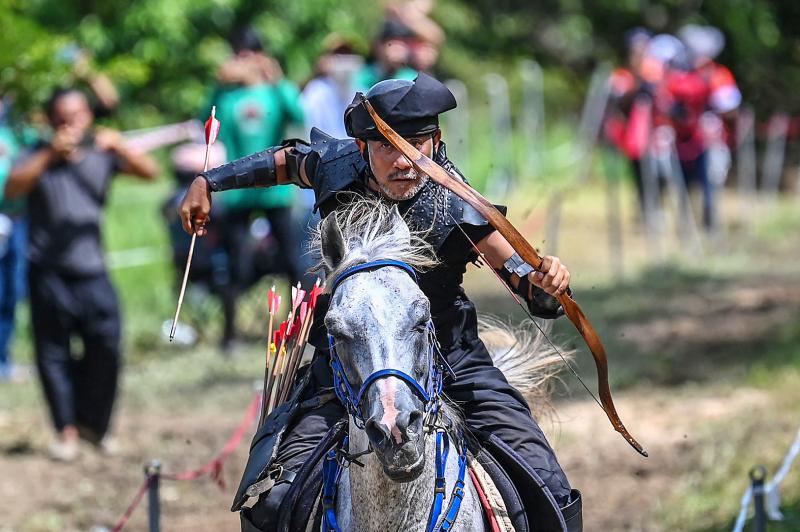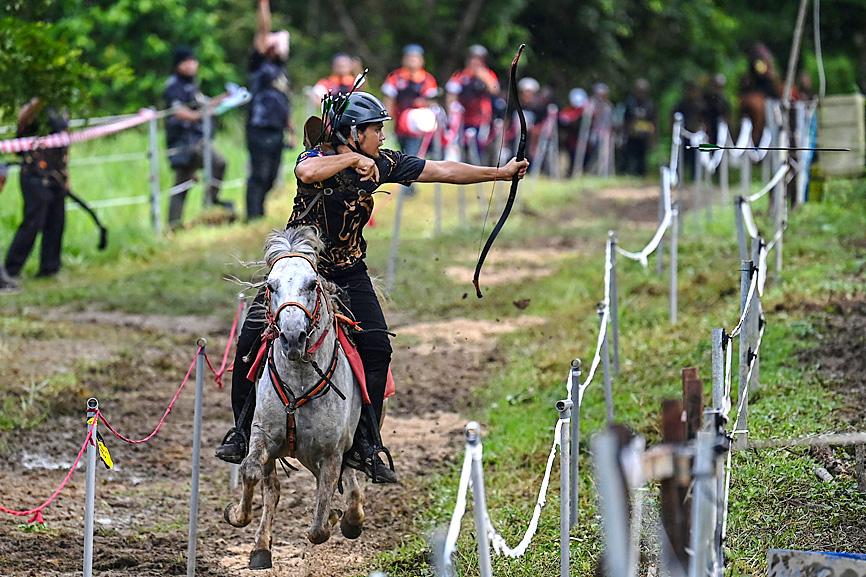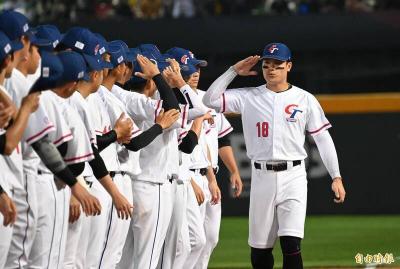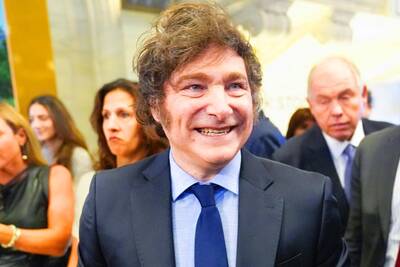Riding a galloping horse under the blazing sun, Malaysian archer Zaharudin Rastam Yeop Mahidin fires an arrow at a target as a crowd cheers.
This is horseback archery, which was common for thousands of years in hunting and warfare, but declined with the introduction of firearms and other modern combat gear. Now it is being revived as a niche sport, gaining a growing following in Malaysia and among a small number of enthusiasts worldwide.
Wearing a traditional outfit associated with the country’s ethnic Malay Muslim majority, Zaharudin was one of 28 riders competing at a tournament in central Rembau District.

Photo: AFP
The 59-year-old veteran archer said it was the most challenging but rewarding sport he had ever tried.
“It’s a blending of mind, body and spirit at its best,” he said. “The mind has to be focused on the task at hand. The body must conform to what’s needed ... handling the bow and arrows on a moving horse... And the spirit — you have to trust the horse.”
Riders at the tournament had to try to hit nine targets within 30 seconds as they galloped along a 200m track, and were judged on their accuracy and speed.

Photo: AFP
The tournament was established in 2018 and has been held several times since, but the recent edition was the first in nearly two years due to COVID-19 curbs in Malaysia.
Horseback archery requires intensive training before riders can shoot targets while moving at speed.
It is also a relatively expensive sport to get into, given the cost of keeping horses and because there are only a few places in the country to learn it.
However, it is becoming more popular in Malaysia, with about 100 people taking part, and the sport’s tight-knit community hopes to entice sponsors and government support, and make it more accessible to the wider public.
Its following has also grown worldwide, with tournaments held in countries from Europe to Asia in the past few years.
For Malaysia’s Muslims, who comprise more than half of the country’s 32 million people, the sport has an extra appeal as the Prophet Mohammed encouraged horse riding and archery.
“People see this as an opportunity to practice the sunnahs [traditions and practices of the Prophet],” said Zarina Ismail, owner of the Cape Cavallho Equestrian Club, where the tournament took place.
Yet for many, the sport’s difficulty is a major draw.
“It’s a challenging sport — and Malaysians like a challenge,” As-Sibaq Malaysian Horseback Archery Association president Syed Abdul Muiz Syed Alias said.

The qualifying round of the World Baseball Classic (WBC) is to be held at the Taipei Dome between Feb. 21 and 25, Major League Baseball (MLB) announced today. Taiwan’s group also includes Spain, Nicaragua and South Africa, with two of the four teams advancing onto the 2026 WBC. Taiwan, currently ranked second in the world in the World Baseball Softball Confederation rankings, are favorites to come out of the group, the MLB said in an article announcing the matchups. Last year, Taiwan finished in a five-way tie in their group with two wins and two losses, but finished last on tiebreakers after giving

North Korea’s FIFA Under-17 Women’s World Cup-winning team on Saturday received a heroes’ welcome back in the capital, Pyongyang, with hundreds of people on the streets to celebrate their success. They had defeated Spain on penalties after a 1-1 draw in the U17 World Cup final in the Dominican Republic on Nov. 3. It was the second global title in two months for secretive North Korea — largely closed off to the outside world; they also lifted the FIFA U20 Women’s World Cup in September. Officials and players’ families gathered at Pyongyang International Airport to wave flowers and North Korea flags as the

For King Faisal, a 20-year-old winger from Ghana, the invitation to move to Brazil to play soccer “was a dream.” “I believed when I came here, it would help me change the life of my family and many other people,” he said in Sao Paulo. For the past year and a half, he has been playing on the under-20s squad for Sao Paulo FC, one of South America’s most prominent clubs. He and a small number of other Africans are tearing across pitches in a country known as the biggest producer and exporter of soccer stars in the world, from Pele to Neymar. For

A debate over the soul of soccer is raging in FIFA World Cup holders Argentina, pitting defenders of the social role of the beautiful game against the government of libertarian Argentine President Javier Milei, who wants to turn clubs into for-profit companies. Argentina, which gave the world Diego Maradona and Lionel Messi, is home to some of the world’s most devoted soccer fans — a fact attributed by supporters like Gabriel Nicosia to the clubs’ community outreach. Nicosia is a lifelong supporter of San Lorenzo, a more than 100-year-old first division club based in the working-class Buenos Aires neighborhood of Boedo where